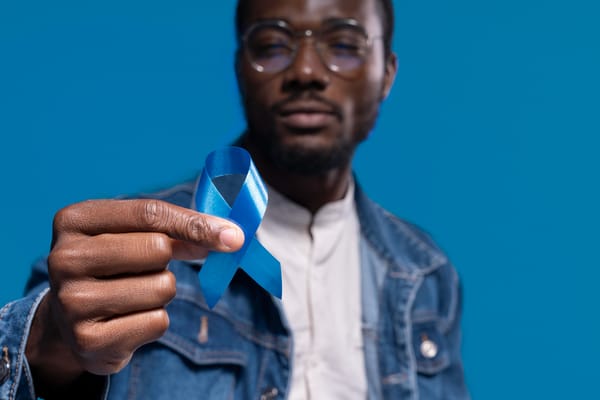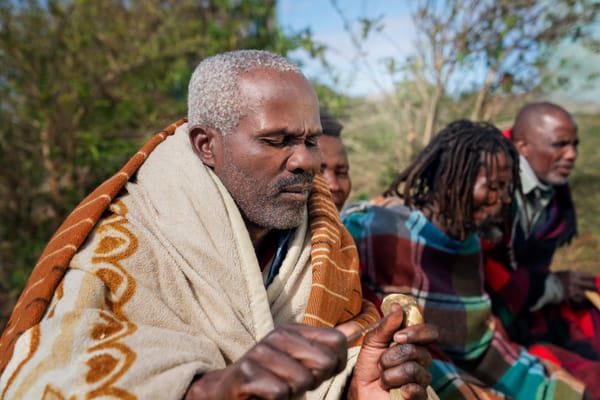Revolutionizing Access to Sexual and Reproductive Health Information and Service in Kenya through Digital Health Initiatives
In today’s digital era, healthcare is evolving rapidly, and RHNK has become a trailblazer in transforming reproductive healthcare across Kenya. By integrating data-driven, patient-centered approaches and digital innovations, RHNK is reshaping how people access and understand sexual and reproductive health services, particularly for underserved populations. RHNK’s innovative model combines telemedicine delivered through Nena Na Binti Call Center, youth-oriented digital content, and community outreaches to make reproductive health information and services more accessible, confidential, and stigma-free. This holistic, digital-first approach empowers people, especially youth, women, and marginalized communities, to make informed decisions about their sexual and reproductive health. These innovations align with key national priorities that aim at promoting the integration of telecommunication technologies to expand equitable access to essential health services such as the Digital Health Act (2023), the National Guideline for Self-Care Interventions in Reproductive Health (2023), the National Tele-Mental Health Guidelines (2021) and the Kenya Standards and Guidelines for mHealth Systems (2017) among others.
Embracing Digital Health for Inclusive Access
At the core of RHNK’s mission is a commitment to client-centered access to sexual and reproductive healthcare. In Kenya, healthcare access varies widely across regions, with rural and marginalized communities often left without essential services. RHNK’s digital solutions aim to bridge this gap and provide high-quality reproductive health information and support tailored to personal needs. One of RHNK’s flagship initiatives is the Nena Na Binti Call Center—a 24/7 toll-free service offering confidential, judgment-free SRHR support. For adolescent girls, young women, marginalized and vulnerable groups, traditional healthcare settings can feel intimidating and even inaccessible. Recognizing this, Nena Na Binti, translating to "Talk to a Girl" in Swahili, is a platform that provides a safe and confidential space for individuals to access guidance, gain knowledge, and make informed decisions about their SRHR and linkages to healthcare providers for services. Through Nena Na Binti, callers can speak with trained counselors and healthcare providers on a variety of topics, including contraception, mental health, and legal rights. This hotline reduces geographic and financial barriers, providing an accessible, empowering platform where users can seek guidance on their health and well-being, free from judgment or fear. For many, it’s a bridge to the knowledge and support they need to make empowered health decisions.
Telemedicine Breakingconnects Down Geographic Barriers
Geographic barriers often restrict access to healthcare. Nena Na Binti connects users with healthcare providers remotely, allowing people to discuss sexual and reproductive health concerns from the comfort of their own homes. This is particularly impactful for adolescents, young adults, and marginalized populations who may feel uncomfortable visiting traditional clinics. Telemedicine provides a discreet, confidential option, enabling individuals to seek care on their own terms. It offers personalized, respectful care tailored to each patient’s unique needs. Whether someone in a remote village needs guidance on contraceptive options or mental health support, the platform ensures they receive compassionate, expert care without the need for costly travel or exposure to potential judgment. This digital innovation is transforming access, particularly for young people, women, and marginalized communities, making sexual and reproductive health information and care more inclusive and equitable.
Engaging Kenya’s Youth Through Digital Content
RHNK recognizes that Adolescents and Young People (AYP) often lack access to accurate reproductive health information, which can lead to misconceptions and poor health outcomes. To address this, RHNK continuously develops digital content specifically tailored to the needs and concerns of Kenyan youth. Through social media, podcasts, videos, and interactive digital resources, RHNK dispels myths, educates, and encourages open dialogue about SRHR topics. From contraception and consent to mental wellness, RHNK’s youth-focused content provides clear, evidence-based information that resonates with young people. This approach reduces stigma and fosters a culture of openness, helping youth feel empowered to take charge of their sexual and reproductive health and make informed choices, making it a catalyst for positive change among the youth.
Data-Driven Insights for Improved Health Outcomes
RHNK’s data-driven approach is a cornerstone of its success in enhancing sexual and reproductive health outcomes. By digitizing its data collection systems through the Electronic Resource Planning (ERP) system, RHNK effectively gathers and analyzes data, aiding in the identification of community-specific needs and adjusting its programming accordingly. For instance, data on contraceptive use allow RHNK to refine its interventions, addressing issues like teenage pregnancies and unsafe abortions that are prevalent in Kenya. By tailoring its programs based on real-time insights, RHNK not only saves lives but also enhances the quality of care, creating a more efficient and responsive healthcare model.
Training Providers for the Digital Age
RHNK’s digital health initiatives also extend to the healthcare providers in its network. By training providers in digital health tools, RHNK equips them to deliver respectful, patient-centered care through telemedicine and other digital channels. These initiatives not only ensures that healthcare professionals offer high-quality, compassionate care, which is essential in the sensitive field of sexual and reproductive health, but also stay updated on sexual and reproductive health best practices, enabling them to adapt to emerging health challenges and offer empathetic, evidence-based guidance.
Digital Campaigns and Community Engagement
Beyond the digital realm, RHNK connects with communities through grassroots campaigns, fostering awareness and dialogue around SRHR. Leveraging on social media, online events, and existing community forums, RHNK raises awareness about sexual and reproductive health and reduces stigma. These campaigns help individuals feel comfortable accessing RHNK’s services, encouraging open discussions about SRHR topics. By building trust and reducing stigma, RHNK empowers communities to take control of their reproductive health, contributing to a healthier and more informed population.
Setting the Stage for Kenya’s Future in Healthcare
RHNK’s work exemplifies how digital health can revolutionize healthcare access in Kenya. By combining data insights with patient-centered care, RHNK sets a powerful example of how digital tools can make healthcare more inclusive, respectful, and effective. This approach has implications not only for reproductive health but also for Kenya’s broader healthcare system, proving that digital solutions can bridge gaps in access and quality. As RHNK continues to expand its digital programs, it’s creating a healthcare model that reaches all Kenyans, regardless of their location or socioeconomic status. By embracing technology with empathy, RHNK demonstrates what accessible, dignified healthcare can look like and ensures that every individual has the support and knowledge to live a healthy, empowered life. Through pioneering efforts in digital health, RHNK shows that technology can be a profound force for equity and dignity in access to healthcare, advancing Universal Health Coverage goals.
Written by: Fahe Kerubo and Innocent Indeje



